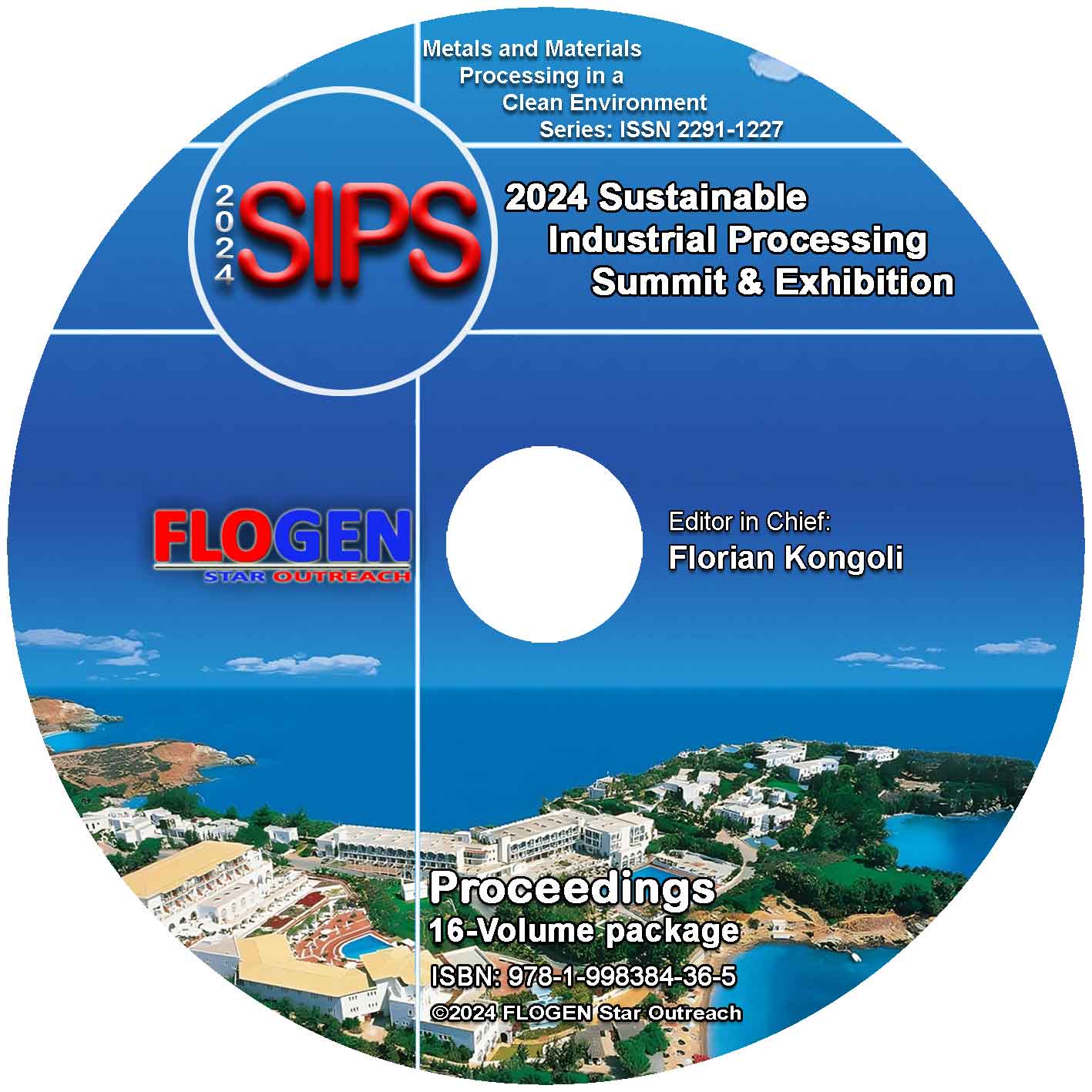2024 - Sustainable Industrial Processing Summit
SIPS 2024 Volume 9. Oktik Intl. Symp / Glass and Polymers Processing and Applications
| Editors: | F. Kongoli, B. Büyükfirat, V. Kapur, S. Tanabe |
| Publisher: | Flogen Star OUTREACH |
| Publication Year: | 2024 |
| Pages: | 172 pages |
| ISBN: | 978-1-998384-20-4 (CD) |
| ISSN: | 2291-1227 (Metals and Materials Processing in a Clean Environment Series) |

CD shopping page
FUNDAMENTAL APPROACH TO A SUSTAINABLE AND CO2-free GLASS INDUSTRY
Christian Roos1;1RWTH AACHEN UNIVERSITY, INTERNATIONAL PARTNERS IN GLASS RESEARCH, 52074 Aachen, Germany;
Type of Paper: Keynote
Id Paper: 39
Topic: 72
Abstract:
Alongside many other industries, the glass industry is also a major CO2 emitter. With various approaches such as electric melting, hydrogen or ammonia combustion or post-processing measures such as CCS, the industry is driving forward the reduction of CO2 emissions to a more sustainable glass production. However, these efforts must be seen in the overall context, firstly because they are unlikely to be sufficient enough and implemented quickly enough to meet the global climate targets and secondly because they ignore a significant area of CO2 emissions which is the raw materials itself.
With a look at the glass industry in Germany, Europe and the world, the presentation will provide an insight into the various problems that arise when switching energy usage from the combustion of natural gas to hydrogen, ammonia or electricity. It will compare the potential and disadvantages of the various approaches and compare the cost of these technologies with the result.
Furthermore, as already mentioned, the general approach of switching to hydrogen-oxygen combustion or purely electric melting falls short when it comes to achieving greater sustainability, a reduction in energy consumption and, above all, a reduction in CO2 emissions. These approaches do not take into account completely CO2-free glass production, as a significant proportion of the CO2 still comes from the raw materials themselves, nor do they call into question the general approach to large-scale glass melting and therefore also the design of the melting furnaces.
The approach presented provides an insight into the development of completely CO2-free container glass production and shows the levers for achieving this. A concept for CO2-free glass production is presented. Key points such as melting kinetics and glass melting behavior in a modified combustion atmosphere, melting and shaping behavior of carbonate-free glass and the effect of furnace layout on space utilization are discussed.